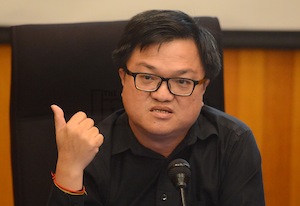More seats for political parties to conduct horse trading?
Cindi Loo, The Ant Daily
A call by Bersih 2.0 for a redelineation exercise that excludes the need for seat increase has befuddled many Malaysians.
That’s because we have operated for a long time under the presumption that seat increase is a procedure that has to be undertaken together with the redelineation exercise in its due course.
But Bersih 2.0 has released their official stance, urging the Election Commission (EC) to consider conducting the redelineation exercise while retaining the current number of 222 MPs, and has argued that it is still possible to draw up boundaries that guarantees proper representation of constituents.
However, unconventional the concept may sound, political analyst and Bersih 2.0 steering committee member Dr Wong Chin Huat said it will be difficult to convince political parties from either side to become supportive of this idea.
“To political parties, having more seats is a good thing because then they can conduct better negotiations for the general elections,” he said.
He added that this applies to political parties from both divides, as political parties rely on allying themselves to a large coalition to be powerful enough to have a stand in parliament and in the government.
Currently, Malaysian politics are dominated by two political coalitions – Barisan Nasional and Pakatan Rakyat – with other minor parties in between.
BN is currently a coalition comprising 13 political parties, whereas Pakatan Rakyat is comprised of three major political parties, therefore seat negotiations have always been an issue that has plagued the coalition even till the days before general elections begin.
This is because Malaysia practises an electoral system called the First-Past-the-Post system, whereby the candidate with the most votes will stand to be the elected representative; therefore having too many political parties contending for the same seats will dilute the votes until there is no clear winner.


